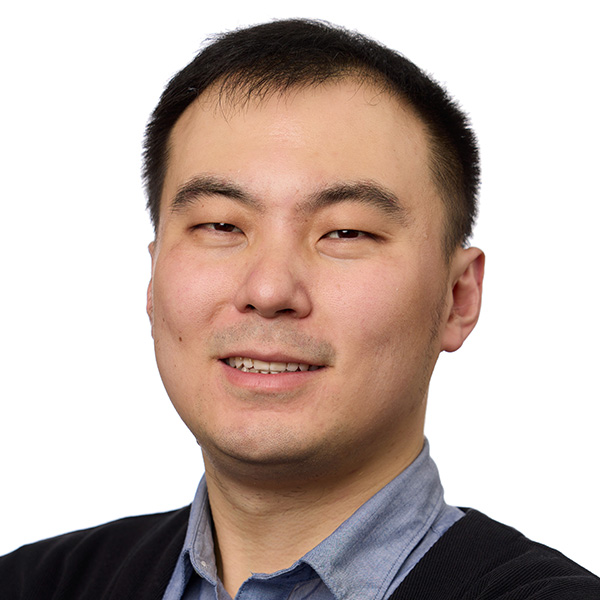Bringing the Brain Into Focus
by Lea Rivel
Assistant Professor Tianyu Wang (ECE) has received a new grant from the Chan-Zuckerberg Initiative for a collaborative project on multi-photon microscopy, a technology used for deep-tissue imaging.
The project, “Correlation Engineering for Deep Multiphoton Microscopy,” funded by a $2.5M CZI Deep Tissue Imaging Phase 2 grant, is a collaboration with researchers from Yale and Cornell.
The project focuses on developing a new type of light source that will substantially enhance the probability of nonlinear fluorescence excitation during the imaging process of multi-photon microscopy. This improved signal will increase both speed and imaging depth, enabling novel but currently challenging experiments such as “direct imaging of the voltage of thousands of neurons within an entire neural circuit and visualizing the communication among numerous neurons via neurotransmitters,” says Wang. To achieve this goal, researchers will use AI tools to search for the optimal excitation pathway for various fluorescent molecules, improving their brightness without modifying their structure. If successful, the new light source will enable researchers to capture faster dynamics within deeper sites for in vivo tissue imaging, resulting in some of the most detailed, high-quality data that has ever been gathered on activity deep within the brain.
Phase 2 of the CZI’s Deep Tissue Imaging program aims to gain a deeper mechanistic understanding of biological systems by visualizing and measuring them across biological scales and in context. Their grant program — accepting four year projects — seeks to advance the field of deep tissue imaging by “driving development of imaging technology focused on obtaining cellular resolution readouts within complex living organisms.”
 Professor Tianyu Wang is the newest member of the ECE faculty as of January 2024. Wang was awarded the Schmidt AI in Science Postdoctoral Fellowship in 2023. In 2017, he won SPIE Photonic West’s JenLab Young Investigator Award for his work on developing the technique of three-photon calcium imaging. His areas of interest include physics-inspired computing, biomedical optics, optical information processing, and A.I. for science. He earned his PhD from Cornell University in 2018.
Professor Tianyu Wang is the newest member of the ECE faculty as of January 2024. Wang was awarded the Schmidt AI in Science Postdoctoral Fellowship in 2023. In 2017, he won SPIE Photonic West’s JenLab Young Investigator Award for his work on developing the technique of three-photon calcium imaging. His areas of interest include physics-inspired computing, biomedical optics, optical information processing, and A.I. for science. He earned his PhD from Cornell University in 2018.